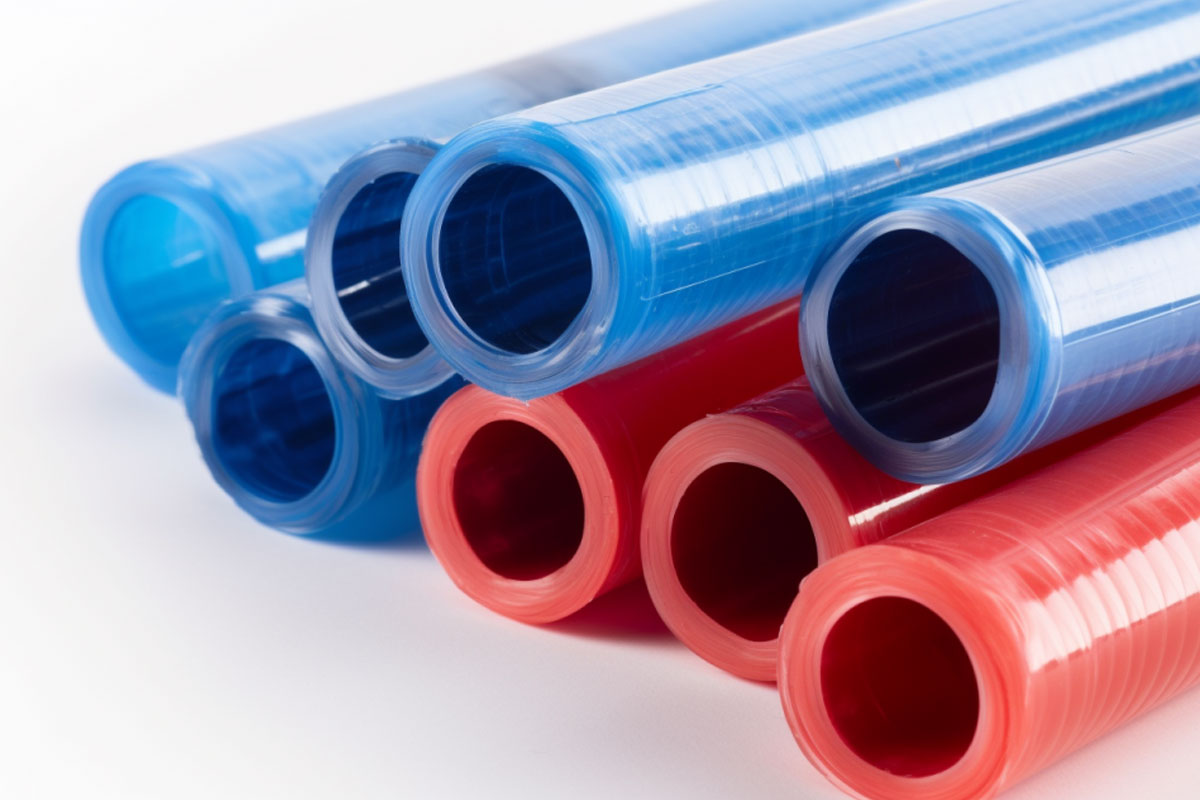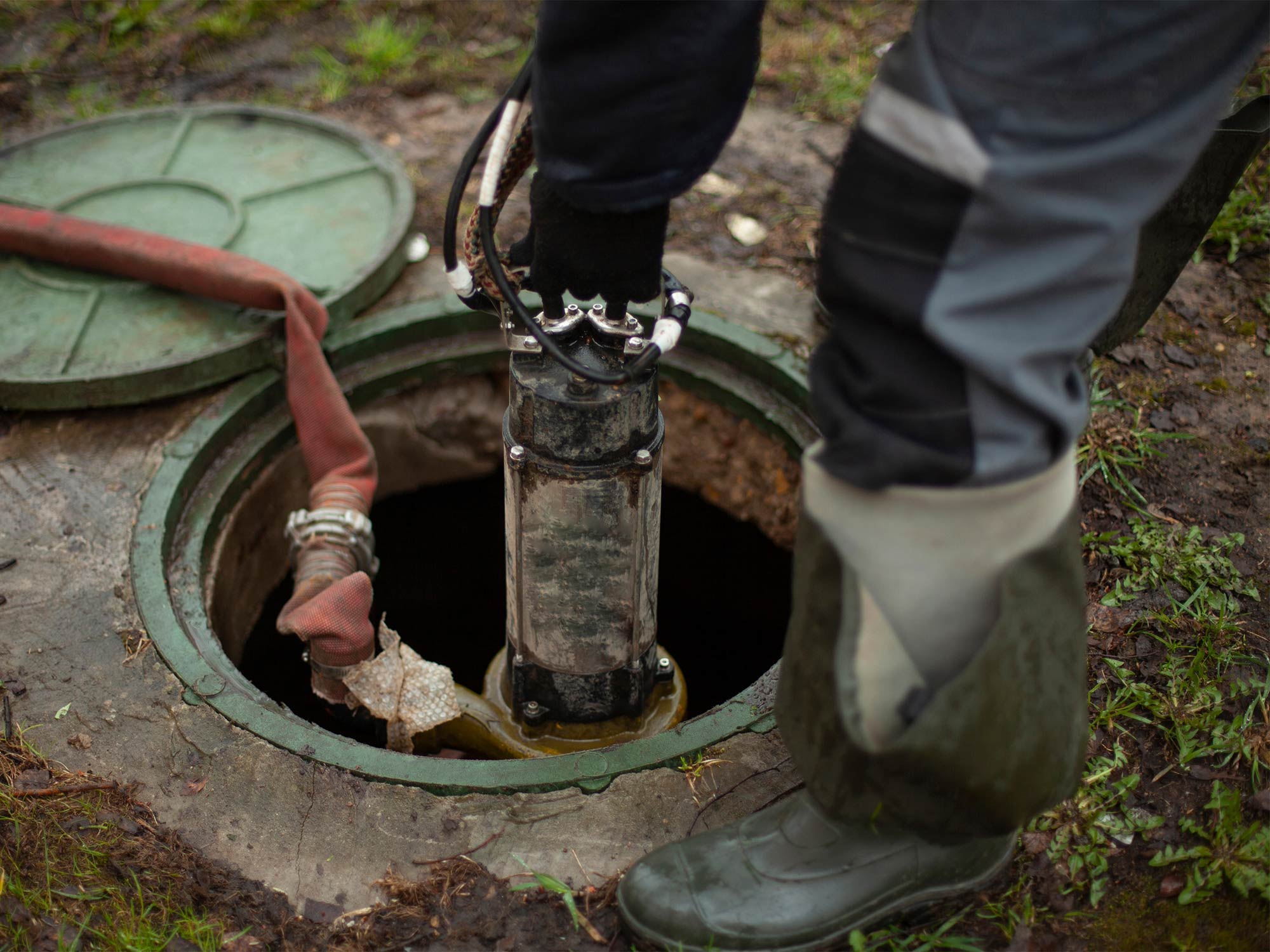PEX pipes – you might have heard about them and might have thought, “What is PEX, and how is it different from other plumbing materials like copper or PVC?” We’ll answer all your questions about PEX and delve into the benefits and drawbacks of using PEX pipes in homes or commercial buildings.
How do PEX Pipes fit in with Repiping Services?
PEX, or cross-linked polyethylene, is a type of plastic piping that has gained popularity in recent years due to its flexibility, durability, and ease of installation. PEX tubing is made from high-density polyethylene (HDPE) that has been cross-linked, which creates a stronger, more flexible material. When repiping a house in Florida from polybutylene pipes, PEX pipes are what KBR chooses to use. Read our guide for how to prepare for a whole house repipe service if you are considering new PEX plumbing.
While traditional plumbing pipe materials like copper and PVC have their place, PEX tubes have quickly become popular in residential and commercial plumbing projects alike for several key reasons. However, it’s essential to know the pros and cons of PEX plumbing to decide if it’s the right choice for your project.
Advantages of PEX Pipes in House Repipe Jobs
PEX pipe is a popular choice among plumbers for a variety of applications, but in particular for use as a supply line and for drinking water. Because PEX pipe is made from a type of plastic, it does not corrode like traditional metal pipes and thus does not add contaminants to the water it carries. This makes PEX a safe and reliable option for delivering drinking water to homes and businesses. It is these features that make PEX pipe a favorite among plumbers, providing a reliable and durable solution for their customers’ plumbing needs. Most new construction use PEX for plumbing lines, heating systems and even radiant floor heating.
Flexibility
One of the most significant advantages of PEX tubing is its flexibility. This allows it to bend easily around corners and other obstructions, reducing the need for multiple fittings and decreasing the risk of leaks. Its flexibility enables it to expand and contract without suffering damage, making it particularly advantageous in areas prone to freezing temperatures.
Corrosion Resistance
Unlike copper or other metals, PEX pipes are resistant to corroding from minerals, chemicals, or acidic water. This means they will maintain their integrity and avoid those pesky pinhole leaks for an extended period.
Ease of Installation
PEX pipes can be quickly installed using fittings or crimp rings, reducing labor costs and installation time. And with fewer fittings required, compared to traditional systems, PEX installations yield fewer potential leak points.
Cost Effectiveness
PEX tubing is generally more affordable than copper and other plumbing materials, primarily due to lower material costs and ease of installation. This cost-effectiveness carries over to long-term savings, as well, with reduced maintenance and repair expenses.
Wide Range of Applications
PEX tubes can be used in a variety of plumbing applications, from residential to commercial, the types of Pex include hot and cold water lines, radiant heating, and fire sprinkler systems.
Pex Vs. Copper Repipe Specialists
PEX (cross-linked polyethylene) pipe is becoming increasingly popular in residential and commercial plumbing applications due to its numerous benefits over copper pipe. One of the biggest advantages of PEX pipe is its flexibility, which makes installation much easier and less labor-intensive. PEX pipe is also more cost-effective than copper, making it an ideal choice for budget-conscious projects. Additionally, PEX pipe is resistant to traditional copper pipe issues such as corrosion, pitting, and scaling, meaning it requires less maintenance and replacement over time. PEX pipe is also proven to have better resistance to freezing, burst damage, and chemical attack. PEX pipe’s smooth interior surface additionally results in superior flow rates and eliminates sediment buildup. Its insulating properties also help maintain temperature and conserve energy. Overall, PEX pipe’s flexibility, durability, and cost-effectiveness make it the ideal choice for any plumbing project, from basic residential repairs to large commercial installations.
Drawbacks and Considerations
Exposure to UV Light
PEX pipes should not be exposed to direct sunlight, as they can degrade over time under prolonged UV radiation. When exposed to direct sunlight for prolonged periods, PEX pipes may degrade and lose their flexibility, leading to problems like cracking and leaks. Furthermore, the degradation process is not always visible on the surface, which means that the damage may be occurring without you even realizing it. To avoid problems with PEX pipes caused by exposure to direct sunlight, it is essential to store and install them correctly.
Susceptibility to Rodent Damage
Just like other plastic pipes such as PVC or CPVC, PEX is also susceptible to damage from rodents or other pests. It’s essential to take measures to protect your plumbing system from these potential threats.
Practical Tips for PEX Plumbing
When considering PEX for your plumbing project, follow these tips to ensure proper installation and maintenance:
- Choose the right PEX tubing: PEX is available in various colors, thicknesses, and types. Make sure you select the appropriate type for your specific application.
- Invest in quality tools: Proper crimping or clamping tools ensure secure connections and minimize the risk of leaks.
- Protect from UV light and pests: Keep PEX tubes away from direct sunlight and consider installing rodent barriers if necessary.
- Inspect and maintain regularly: Like any plumbing system, to ensure optimal performance and longevity, regularly inspecting and maintaining PEX pipes is essential.
In conclusion, PEX piping offers a range of benefits for homeowners, commercial properties, and plumbers, making it a popular choice in the plumbing industry. With its flexibility, durability, and cost-effectiveness, it is ideal for a variety of applications, including supply lines, drinking water, and radiant heating systems. PEX piping eliminates the issues of corrosion and pitting that traditional metal pipes (copper and galvanized) experience, providing a safe and reliable option for conveying water. Regularly inspecting and maintaining PEX pipes is important for optimal performance and longevity. Overall, PEX piping’s many advantages make it an excellent choice for any plumbing project.



